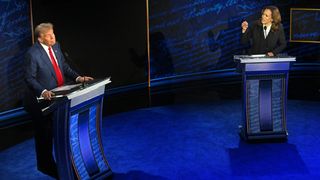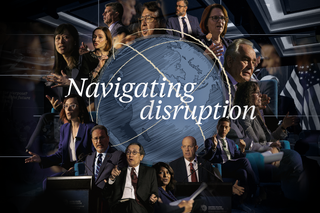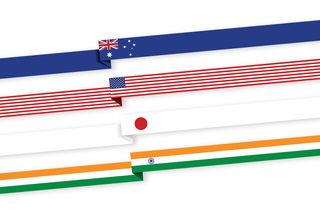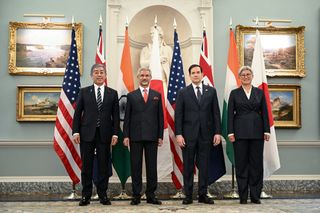Judging debates usually comes down to picking a winner or loser.
Seeking a more nuanced approach to the first presidential debate between Republican Donald Trump and Democrat Kamala Harris, The Conversation asked experts in US politics, history and the media to weigh in on four points: overall performance, policy strength, truthfulness and omissions, and the most memorable moments. Here’s how Jared Mondschein saw Tuesday’s performances.
Performance
Coming into the debate, Kamala Harris by far had the most to lose. A recent poll from The New York Times/Siena College found nearly a third of Americans wanted to know more about her, but less than 10% wanted to know more about Donald Trump.
This is Trump’s third time leading the Republican presidential ticket – he’s not exactly an unknown quantity at this point. Most surprisingly in that poll for many, however, was that Trump actually led Harris nationally – signalling an end to the Harris momentum that had defined the race for the last few weeks.
Judging by viewer polls, Harris did not seem to lose this debate. Reinforcing this, Trump’s campaign has focused its post-debate commentary on the bias of the debate moderators.
Trump’s team appeared to have prepared him well, with pointed criticisms of the Biden administration’s record on the economy and foreign policy. Ultimately, however, he spent the majority of the night on the defensive, unable to resist being baited by Harris’ points on everything from rally crowd size to abortion.
Policy
Since Harris has only conducted one major interview since becoming the Democratic nominee, the debate was an opportunity for her to give voters more insights on her policies.
It was also an opportunity for Harris to clearly articulate her more moderate stance compared to her 2019 presidential campaign platform. After all, The New York Times/Siena College polling found US voters more likely to deem Harris progressive than to deem Trump conservative.
On abortion, Harris made clear she was not going to clarify her stance on third trimester abortions, and Trump made clear he was not going to clarify his stance on whether he’d veto a national abortion ban.
Trump perhaps came prepared better than before in terms of being able to correctly posit that Roe v Wade had been criticised by even progressive judicial scholars for its weak legal foundations. But it is unlikely the considerable advantage Harris has over Trump with voters on this issue will change.
On the economy, Harris would not criticise her own administration for not doing enough to tame inflation, and Trump would not admit that tariffs on imports from abroad will effectively be a tax on US consumers of those imports.
Some outlets have already declared Harris the winner of this debate. If it was a victory for her, then it was not due to her articulating a more concrete policy agenda. She did not announce any new policies or deviate in any significant measure from her prior policies and talking points.
Truthfulness and omissions
There has never been more factchecking in our media, but there remains a debate as to whether factchecking makes an tangible impact.
Furthermore, it’s unclear the many factchecking articles following something as performative as a political debate will have much of an impact on perceptions of the candidates. Perhaps more impactful than perceptions of objective truthfulness will be the perceived “truths” from the debate.
Back in 2016, Hillary Clinton’s supporters thought it was an undeniable truth she won her debates against Trump because she looked more conventionally presidential and policy-centric. Trump supporters thought it was an undeniable truth that he won because he mocked the entire charade of her out-of-touch policy agenda.
One truth for Trump supporters after this debate may be that the moderators fact-checked more of his statements than Harris’. One truth for Harris supporters may be that she appeared confident and in command in an unscripted environment.
It remains unclear, however, what the truths will be for the very few truly undecided voters.
Memorable moments
The most surprising moment to me – and what I think set the tone for the debate – was Harris’ handshake with Trump at the start. These two had never actually met before today. The way she walked over to him – entering his space instead of meeting in between the podiums – was a physical demonstration of what Harris planned to do during the debate. She succeeded on that front.









